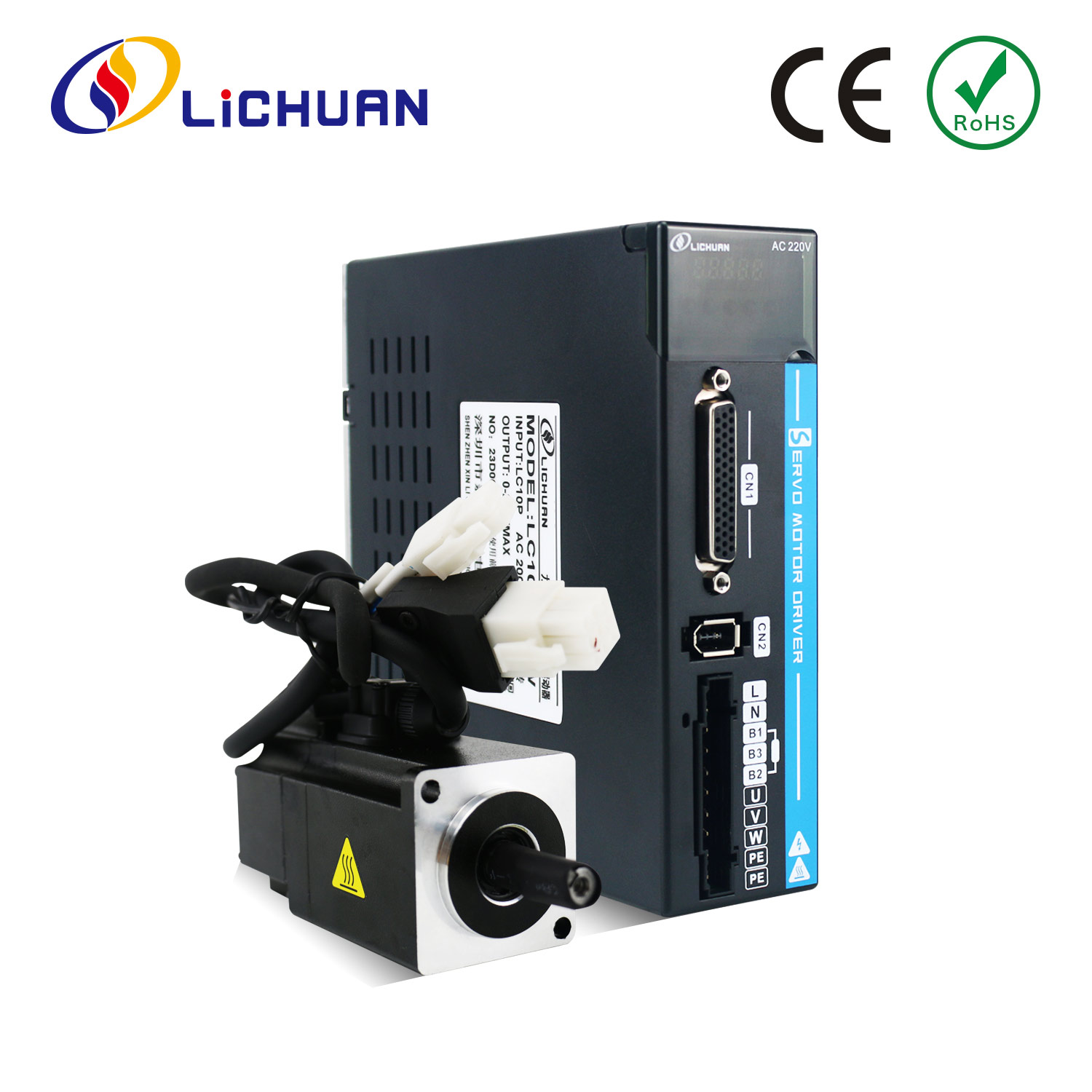What Makes AC Servo Motors a Popular Choice for Precision Applications?
2024-12-17
In the world of automation and robotics, precision is key, and achieving high accuracy in motion control systems often requires the use of specialized components. One such component is the AC Servo Motor. But what makes AC Servo Motors so essential, and why are they increasingly being chosen for a variety of precision applications? Let’s explore the key features and benefits of AC Servo Motors that contribute to their widespread use in industries ranging from manufacturing to robotics.
1. What is an AC Servo Motor?
An AC Servo Motor is a high-performance electric motor designed to provide precise control of angular position, speed, and torque. Unlike standard motors, which may lack the necessary accuracy for complex applications, AC Servo Motors are paired with an encoder or a resolver, which allows for closed-loop feedback to monitor the motor's position and adjust accordingly. This makes them ideal for applications that require high precision and consistent performance.
2. Why are AC Servo Motors Preferred for Precision Control?
AC Servo Motors offer several key advantages that make them the go-to choice for precision applications:
- Closed-loop Feedback System: As mentioned, AC Servo Motors feature a feedback system that constantly adjusts the motor’s performance in real-time. This ensures accurate positioning, speed, and torque control, which is crucial for applications like CNC machining, robotic arms, and automated production lines.
- High Efficiency: These motors are designed to run efficiently by automatically adjusting power output based on the load. This feature helps reduce energy consumption and minimizes the risk of overheating, which is often seen in non-servo motors when running under heavy loads.
- Smooth Operation: AC Servo Motors operate with minimal vibration and noise, thanks to their precision control and low backlash. This smooth operation is vital in industries where even small disturbances can affect product quality or the precision of movements.
3. Where Are AC Servo Motors Commonly Used?
AC Servo Motors are used in a wide range of industries, primarily in applications that require precise movement, positioning, and speed control. Some of the most common uses include:
- Robotics: Robotic arms and other automation systems rely on AC Servo Motors to perform complex tasks with high accuracy. These motors enable precise movements, such as picking, placing, welding, or assembly tasks, in industrial robots.
- CNC Machines: AC Servo Motors are integral components in CNC (Computer Numerical Control) machines. They provide the necessary torque and control to position cutting tools with high precision, allowing for intricate designs and high-quality machining processes.
- Conveyor Systems: In automated warehouses and factories, AC Servo Motors are used to control the speed and movement of conveyor belts. Their precise control ensures that products are moved smoothly and accurately to the next stage of the production process.
- Medical Equipment: In medical devices like imaging systems or diagnostic equipment, AC Servo Motors help ensure precise movements and positioning, which is crucial for accurate diagnoses and procedures.
- Packaging and Printing: High-speed packaging machines and printing presses also depend on AC Servo Motors for smooth, precise, and reliable operation, ensuring that packaging lines and printing processes run efficiently.
4. What Are the Key Advantages of Using AC Servo Motors?
When it comes to selecting a motor for precision applications, the AC Servo Motor offers several compelling advantages:
- High Torque at Low Speeds: AC Servo Motors are capable of delivering high torque even at low speeds, making them ideal for applications where precise control and starting torque are essential.
- Fast Response Time: These motors can quickly adjust to changes in speed or load conditions, ensuring that the system responds instantly to commands. This rapid feedback loop is crucial in high-speed, high-precision applications.
- Longer Lifespan: Because of their energy-efficient operation and high-quality construction, AC Servo Motors tend to last longer than traditional motors, reducing the need for frequent maintenance and replacements.
- Compact Design: AC Servo Motors are typically smaller and lighter than other types of motors that provide similar performance levels, making them ideal for applications with space constraints.
5. Are There Any Limitations of AC Servo Motors?
While AC Servo Motors offer numerous benefits, there are a few factors to consider when deciding if they’re the right fit for a specific application:
- Cost: AC Servo Motors tend to be more expensive than standard motors due to their advanced technology and precision features. However, their higher efficiency, longer lifespan, and improved performance may justify the cost in applications where precision and reliability are critical.
- Complexity: Implementing AC Servo Motors requires a well-designed control system. Depending on the complexity of the task, the system may need a higher level of expertise to set up and maintain.
6. Conclusion: Why Choose AC Servo Motors for Precision Control?
In conclusion, AC Servo Motors continue to be a top choice for industries that demand high precision, efficiency, and reliability. Their ability to provide smooth, accurate control in various applications, from robotics to CNC machining, makes them indispensable in modern manufacturing and automation. Despite the higher initial investment and potential complexity, their long-term benefits in terms of energy savings, durability, and performance far outweigh the drawbacks.
If your business or project requires precise control over movement, positioning, or speed, an AC Servo Motor may just be the ideal solution. Its versatility and performance make it an essential component in driving the next generation of advanced automation systems.



